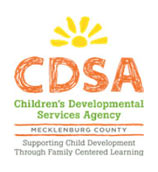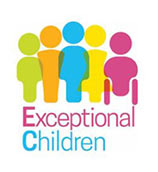
About ZFive
ZFive is a collaborative working group, providing a community of support for the positive social and emotional development of children ages birth (zero) through five in Mecklenburg County, North Carolina. Founded in 2007, ZFive works to raise awareness, advocate for resources and enhance the quality of services provided to young children and their families in our area. With representation from dozens of local organizations, our diverse group includes mental health practitioners, program administrators, funders, educators, early intervention providers, childcare providers, researchers, medical professionals, and parents. We welcome new participants at any time!
Quarterly meetings are held virtually on the third Thursday of January, April, July and October from 9-10:30 am. Click here to receive updates from ZFive, including information on how to attend our meetings.
Why Early Childhood Matters
Rapid brain development provides a window of opportunity in early childhood
At birth, a baby's brain is one of the few major organs that is still in the process of development. It is only 25% of the size it will reach in adulthood. While the newborn brain is fully equipped to manage reflexes and other responses required for survival, higher-level brain functions - e.g., communication skills, the capacity for learning, and the regulation of behavior & emotions - develop over time, and depend heavily on input from the environment surrounding the child.

Why is the environment so crucial in brain development?
For how long does this rapid period of brain development continue?
How can adults promote children's early brain development?
- What you can do to promote your child's early brain development.
- Learn more about brain development in early childhood from the Center on the Developing Child - Harvard University
For Parents/Caregivers
Adults are the key to promoting children's early brain development
We now know that stable and nurturing caregiver relationships are the key to promoting the best possible outcomes for children, which means that YOU can make a difference in your child’s early development! By providing sensitive and responsive care, including lots of serve-and-return interactions, you are giving the environmental input your child’s brain needs to grow.

How do I know that my child's development is on-track?
Because we can't see inside the brain to check on its growth, caregivers sometimes wonder if what they are seeing in their child is "normal" or expected. Checking for milestones in the way children play, learn, behave and interact is one way that pediatricians are able to ensure that children's early development is on track. Parents can do this, too, through the Centers for Disease Control's "Learn the Signs, Act Early" Milestones Tracker.
Learn more about milestones in development:

